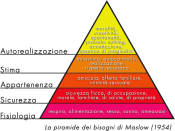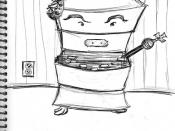The Bureaucratic Model
The bureaucratic model is the basis for the other models it is in the structural frame. Max Weber developed a list of five characteristics that reflect the "ideal type" of bureaucracy. The first characteristic is Division of Labor. Within the bureaucracy there are different specific positions that perform specific jobs. This way the people that do their job can concentrate on their specific task and become skilled in it creating high efficiency for the organization. The second characteristic is Hierarchy of Authority. Bureaucracies have what is called hierarchy in which the different positions that are in the group have a higher authority. The third characteristic is Written Rules and Regulations. This is an important factor within the bureaucracies. This controls and regulates the performances within the organization to what is expected. The fourth characteristic is Impersonality. Employees are treated without personal consideration in order that each person gets equal treatment.
The fifth characteristic is Employment Based on Technical Qualifications. The hiring of employees is based on qualifications rather than reasons of favoritism. In this way organizations have employees with the skills required within the groups. The bureaucratic theory of management believes that people are merely parts of a machine, everyone has their own role to play much like a gear in a machine, if either that part, or gear are not operating correctly the organization, or machine will not run properly and be ineffective.
A person holding this model as their belief of the way an organization should be run will disagree with Michael Lipsky in his article "Street Level Bureaucrats as Policy Makers". A bureaucratic theorist would cringe at the idea that subordinates can use their own discretions in carrying out their jobs. They believe that people need to be supervised and that there should be...


